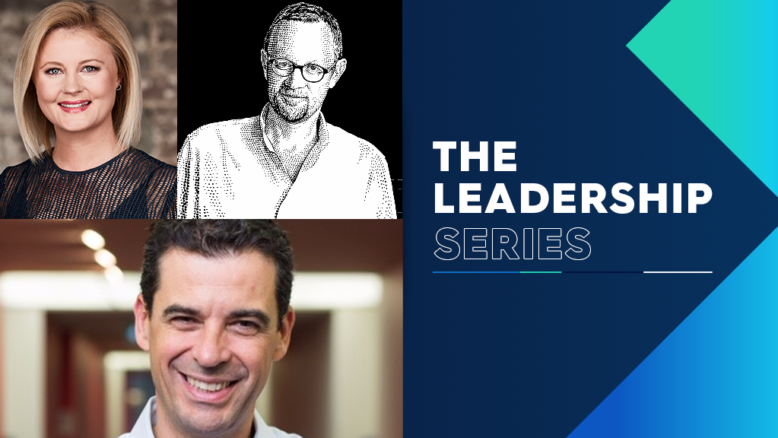Nestle marketing boss says now is a good time to invest in brand building

Nestle marketing boss says now is a good time to invest in brand building

While it may feel right for brands to “go dark” when it comes to marketing during the COVID-19 pandemic, Nestle’s director of e-business, strategy and marketing, Martin Brown, says for brands that can afford it, now is a “really good time to be investing in advertising and building brands”.
Brown was speaking on Reset Now, the Leadership Series, an initiative between the Australian Association of National Advertisers (AANA), Nine and Mi3 for marketers to share their experience and evolving strategies as they manage the COVID-19 crisis, plan for the recovery, and see how deep consumer mindsets and behaviour might shift.
“If you look at the lessons of the global financial crisis, those brands that were able to continue to invest during that period not only did better during the crisis but did better and outperformed the market in growth over the next decade,” Brown said.
“I think the rules remain the same about getting value out of your marketing investment. You need to find a way to be relevant and also distinctive. If you do that well now you can engage with consumers that might otherwise have not discovered your brand, or those rediscovering your brand for the first time in a long time. Then you can start reinforcing that relationship and build something really incredibly valuable over time.
“So if you can afford it, now is a really good time to be investing in advertising and building brands.”
Brown says Nestle is doing just that by continuing to invest in building its brands. However, he acknowledges that there have also been “fundamental changes” in media plans and content strategy.
“But it’s absolutely a determination to continue to invest,” he asserts. “Brands play a really important part in people’s lives right now and there’s lots of people watching screens and looking for brands to still play a role in the content they engage with.
“When you take something right away from someone they will miss it. People enjoy great advertising, so it’s beholden on us to be relevant, useful and engaging, and if we’re doing so right now, we can get a better ROI than ever.”
Brown has worked for Nestle for 17 years, starting in confectionery before moving to Nestle’s headquarters in Switzerland to become the global brand director for KitKat in 2002. In 2006, he returned to Australia as general manager of the beverages division and in 2012 he became general manger of confectionery and snacks. He shifted to his current role in September 2018 as director of strategy, marketing and e-commerce.
“E-commerce is definitely driven by a need to avoid some of the challenge, particularly during the early stages of the health crisis, of getting into supermarkets, and it’s unsurprising that we saw the surge in need,” Brown said.
“The difficulty was in the supply chain being overloaded during the panic-buying crisis and this meant the suspension of online deliveries. They are coming back online now and this is very important – a big opportunity for FMCG brands to respond to.
“We’ve seen an increased surge in sales through Amazon as well, and also in some of our direct-to-consumer businesses. What we all need to focus on right now is getting online availability right if you want to succeed, as more shoppers are moving online.”
Brown believes there is a chance this consumer behaviour pattern could be permanent. Nestle, for one, is seeing an increase in customers moving online because of COVID-19.
He said: “Right now it is incredibility convenient and that convenience is going to stick. It’s not for everyone, but once people have tested an alternative to their normal behaviour and seen it work they’re going to stick with it.
“We will see a whole bunch of positive behaviour experiments that have come through this pandemic becoming the kind of things that consumers want to stick with because they’re working for them now.”
The standard rules of e-commerce will, however, remain “absolutely true”, Brown declared.
“Online availability is absolutely essential, and getting a good search strategy is too. But I think increasingly, as a different shopper profile is coming online, finding the right way to bundle brands together into specific occasions and needs is also going to be a real differentiator.
“The greater insight you can bring to that, based on the different typologies of households, the better you’re likely to serve out something of value and interest in an online environment.”
For brands navigating the COVID-19 crisis, Brown emphasised the role of the consumer insights team helping to understand the weekly cycle.
“Get an understanding about how this crisis is playing out on households and individuals in emotional terms,” he advises. “How is it affecting the way they feel? What are their drivers of anxiety? What are their confidence levels? How is it changing their behaviour? And particularly, when you know what that behaviour is, what are the needs they have that we can respond to?
“We’ve had a huge challenge in the way we can stay relevant and topical with quite fast turnaround consumer communications. We’ve had to deploy completely different production techniques, as others have. And we’ve had to engage ourselves more in the conversation, as opposed to broadcasting with long pre-prepared messages.
“All of that’s actually going to make for better marketing communications. It’s going to deliver increased levels of relevance.”
Brown also acknowledged the challenge for brands to deliver distinctive communications “on the fly” and said Nestle is “doing a lot of testing and learning and getting better at it”.
“But some brands have a natural role to play at a time like this,” he said. “So a brand which is an essential one for families, delivering great-tasting nutritious meals conveniently, is helping these families because they are doing much more home cooking than ever before, and inspiring them with new cooking ideas.
“And to make it even more accessible, that’s all been done with user-generated content from home cooks that love the brands, have their own special solutions, and are sharing those with home- cooking classes.”
Looking to the future, Brown is positive the industry will be better for the challenges posed by COVID-19.
“Working through a crisis builds your skills and we will have better marketers and better-run brands for it,” he said.
“Things that are really important during a time like this not only make you recognise that you have to change your plan, you also need to be more agile in developing something that’s more relevant to where you are – you have to get closer to your consumer.
“This is not working at arm’s length, this is getting into direct connections, to really empathise with what people are going through and understanding how you can make their lives better and the role your brand can play in that.
“People are going to remember, long after the crisis has finished, how you acted. That’s true of companies and true of brands and true of leaders. Marketers now have a great opportunity to be very influential leaders in their organisation and drive a greater sense of optimism and positivity as well as true consumer connection.
“Brands can really be distinctive right now by being useful, and also being kind.”






